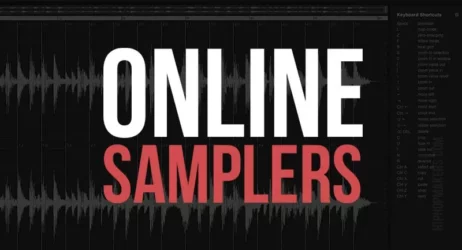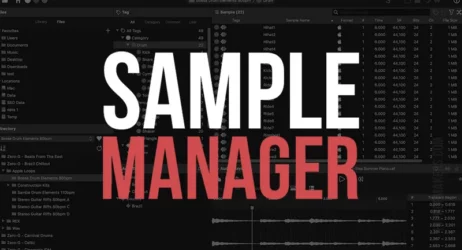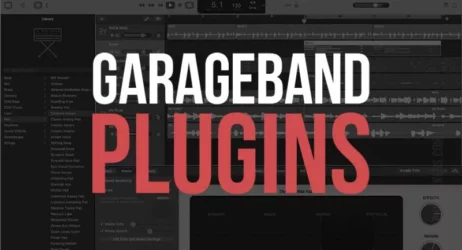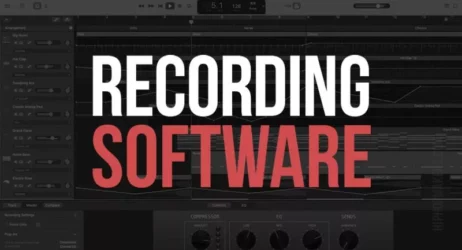This guide will answer what music licensing is, how it works, the different types of music licenses, and how to license your music.
What Is Music Licensing?
Music licensing is the process of obtaining a legal license to utilize copyrighted music. It allows people or organizations to legally use copyrighted music for their needs and ensures that the owners of copyrights on musical works are compensated for certain uses of their work.
- What Is Music Licensing
- What Does Music Licensing Do
- The Types of Music Licenses
- Why Is Music Licensing Important
- The Cost To License Your Music
- How Do I Licence My Music
- How Much To Charge
- How Much Is An ASCAP Music License
- Popular Music Licensing Books
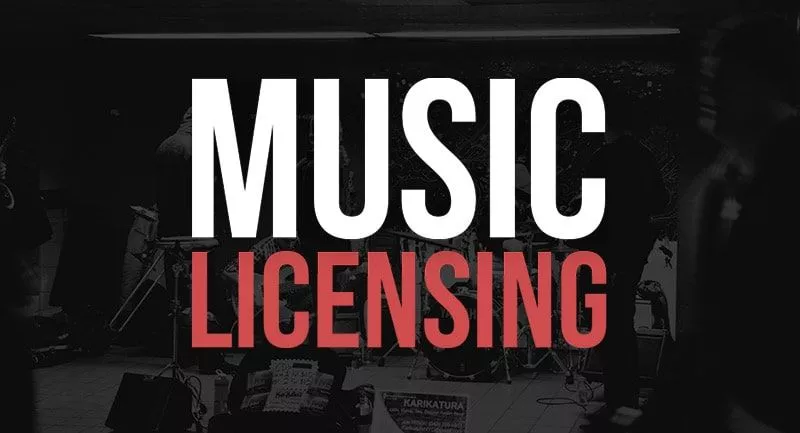
What Is Music Licensing?
Music licensing is the process of licensing a song or group of songs to be used in film, television, radio, and other media. The rights associated with music licensing are known as a “license” and can be acquired from the owner of a song or a music publishing company.
Music licensing is essential for the production of films and can also be used in a variety of other ways. For example, music licensing can be used for commercial businesses to provide music for their establishment.
In addition to the background music used in a business, it is also possible to obtain music licenses for places where live performances are taking place.
It is important to note that not all music is suitable for licensing. Some music may be protected by copyright, which makes it illegal to reproduce without the owner’s permission or a license from a music licensing company.
What Are Music Licensing Companies?
Music licensing companies help musicians and songwriters with music license legal matters. They ensure that all proper procedures are followed when songs are used in films or other media outlets.
In addition to helping with the licensing process, music licensing companies also help with the collection of royalties, which are payments for the use of music.
You may be familiar with music licensing companies, such as BMI, ASCAP, and SESAC. These are all performing rights organizations, or “PROs,” and they help distribute royalties to those who hold the music rights.
While it is possible to obtain licenses on your own without the assistance of a music licensing company, most professional filmmakers and other media outlets prefer to use a licensing company because it makes the process easier.
Music licensing companies often work with several different musicians and songwriters, which means it is possible to obtain licenses from several different options.
How Does Music Licensing Work?
There are three stages involved in music licensing. The first stage is acquiring a license, which is done by contacting a company that offers music licensing.
The next step is to follow the instructions of the licensing company and pay any required fees before a license can be acquired.
The third stage is the distribution of royalties, typically handled by a distribution service that collects profits and distributes them among the licensing company and songwriters/musicians.
Once the songs have been acquired, they can be used in films or other projects without any additional fees.
What Does Music Licensing Do?
There are many different ways that music licensing can be used. For example, it is possible to generate revenue for a film by purchasing the right to use a song.
In addition, music licensing can be used to distribute copyrighted songs through royalties and licenses legally.
In short, licensing music is essential for professional filmmakers and other media outlets because, without licenses, it would be difficult to reproduce music legally.
What Are The Types Of Music Licenses?
There are six types of music licenses: synchronization license, mechanical license, master license, public performance license, print rights license, and theatrical license.
1. Synchronization License
Filmmakers acquire this license to reproduce music in synchronization with an audiovisual work. This means that you would need a synchronization license to include a song in your film.
This type of music licensing can also be used for television, live performances, and other mediums.
2. Mechanical License
This license allows for the reproduction of copyrighted songs on physical media, such as CDs and records.
This type of licensing is not used to reproduce songs electronically. Instead, this license is acquired when a filmmaker wants to reproduce music on media physically.
3. Master License
A master license is acquired when a filmmaker wants to reproduce music with permission but does not change the original recording. This license only allows the filmmaker to reproduce the song’s original recording.
4. Public Performance License
This license gives you the right to reproduce, distribute, and publicly perform a song. The key difference between this and a mechanical license is that public performance licensing allows users to perform a song publicly.
It is the most common type of music license used by filmmakers to reproduce songs for film screenings and other types of public entertainment.
5. Print Rights License
This license gives you the right to reproduce a song for use in printed materials. This can be used when a filmmaker wants to reproduce songs in magazines, newspapers, or other types of textual material.
6. Theatrical License
This type of music licensing is used to reproduce copyrighted songs in theatrical exhibitions. Filmmakers acquire this license to reproduce music in theatrical exhibitions.
For example, if you wanted to play your film at an off-broadway theater or other forms of theatrical exhibition, then it is important to acquire this type of music licensing.
Why Is Music Licensing Important?
For a filmmaker or other media outlet to legally reproduce music, they must obtain a license.
Without licenses, filmmakers and other media producers would be forced to find original songs to use in their films or projects. This would likely be difficult and expensive, which could cause a film to fail.
On the other hand, if a filmmaker or media outlet reproduced copyrighted music without obtaining a license, they could face legal consequences and be forced to pay reparations.
For this reason, filmmakers and other media producers must acquire the necessary licenses before using music in their productions.
How Much Does It Cost To License Your Music?
The minimum cost for purchasing rights to a song is between $50 and $150. However, these costs can quickly scale depending on the song’s popularity and how frequently you want to reproduce it.
However, it is necessary to determine which type of license you need to determine how much music licensing costs. The price for these licenses varies depending on the type of license you need.
For example, if you needed a mechanical license, the cost would depend on how many copies of your song you would like to reproduce and distribute.
On the other hand, if you needed a master license or public performance license, the cost would depend on how many people were expected to perform the song publicly.
In addition, it is important to note that your total cost could increase if you need to obtain multiple types of licenses because each type of license has a different cost.
How Do I License My Music?
To license your music, you must first obtain the license to do so. This may be through your local library, ASCAP, BMI, or SESAC.
The type of music you wish to license and the purpose for which it is used (such as documentary, film, TV) varies. After securing a license, you can charge for this service.
How Much Should I Charge To License My Music?
The licensing charges nowadays vary drastically, and they can make or break your business, especially if you’re starting. So it is important to know how the charges break down and what you’re getting for your music.
The cost of licensing music depends on whether or not you are providing the rights to reproduce, distribute, and publicly perform your song. If you are only selling the rights to reproduce your song, you should expect to charge between $50 and $150.
However, if you provide the rights to distribute and publicly perform your song, the licensing price will be higher. You can expect to charge anywhere from $150 and up.
How Much Is An ASCAP Music License?
ASCAP (American Society of Composers, Authors, and Publishers) is one of the most popular music licensing companies. This company represents more than 850,000 composers, songwriters, and music publishers.
ASCAP’s service is considered one of the most complete in the country because it also provides legal assistance, licensing, and royalty distribution. This is particularly beneficial for songwriters who need to license their music or be represented by a company that can distribute their royalties.
However, ASCAP has a membership fee of $390 per year. This fee must be paid to gain access to their licensing service.
Related: What Is A Music Publisher
Popular Music Licensing Books
Here are the most popular music licensing books on Amazon.
Last update on 2025-09-28 / Affiliate Disclaimer
Summary of Music Licensing
Music licensing refers to obtaining a license to use copyrighted music. Copyright laws ensure that the owners of musical copyrights are compensated when their works are used for different projects.
I hope you now have a better understanding of music licensing.
Related: How to Sell Background Music Online








